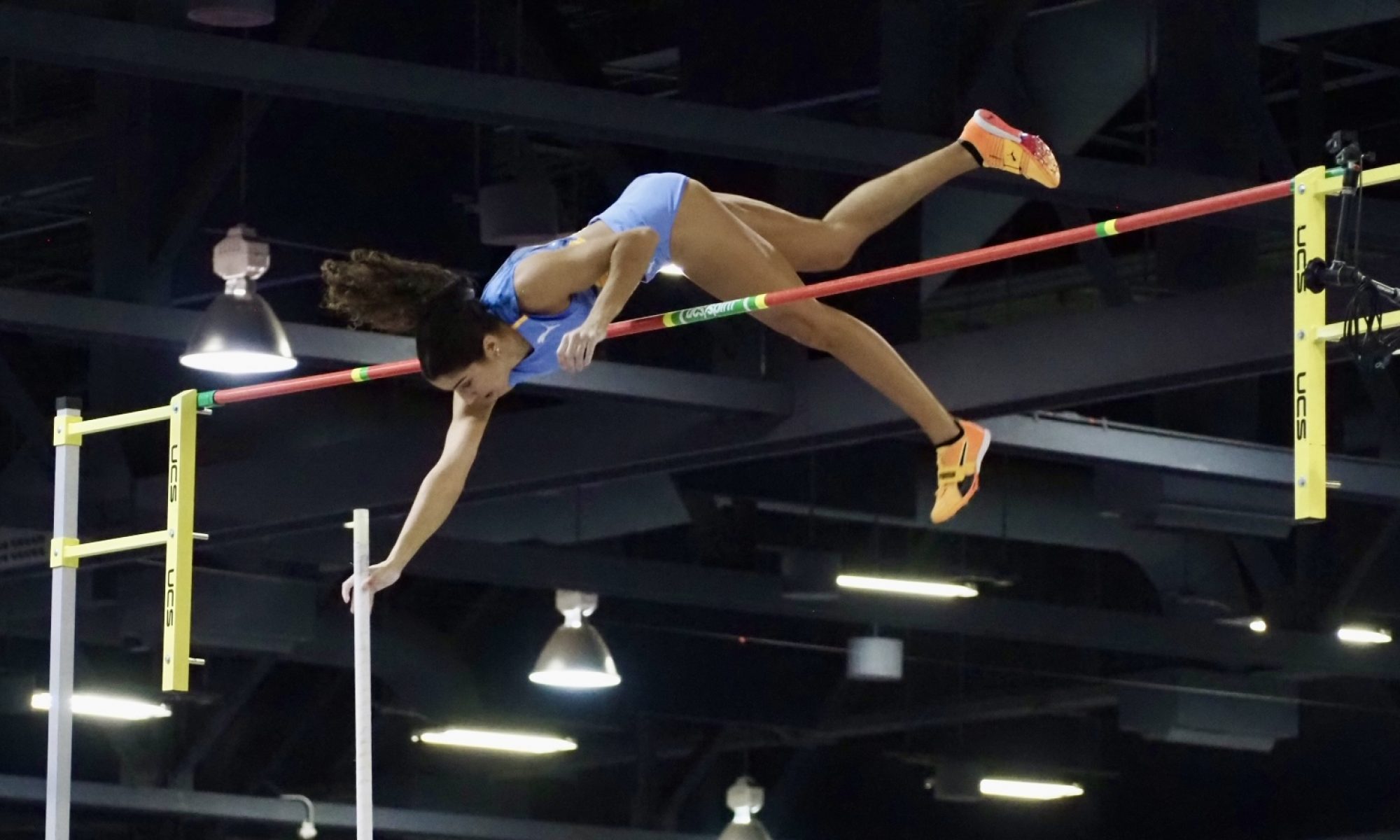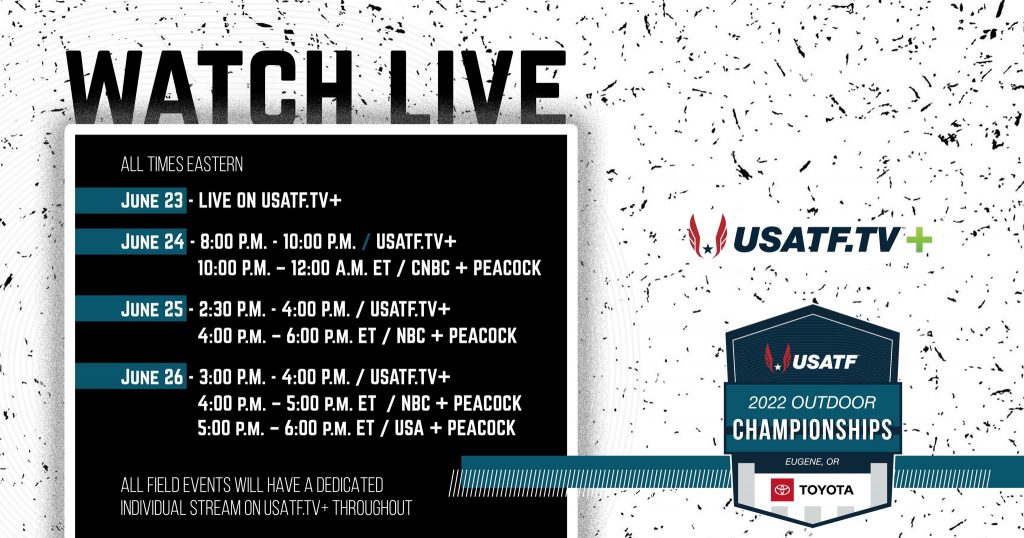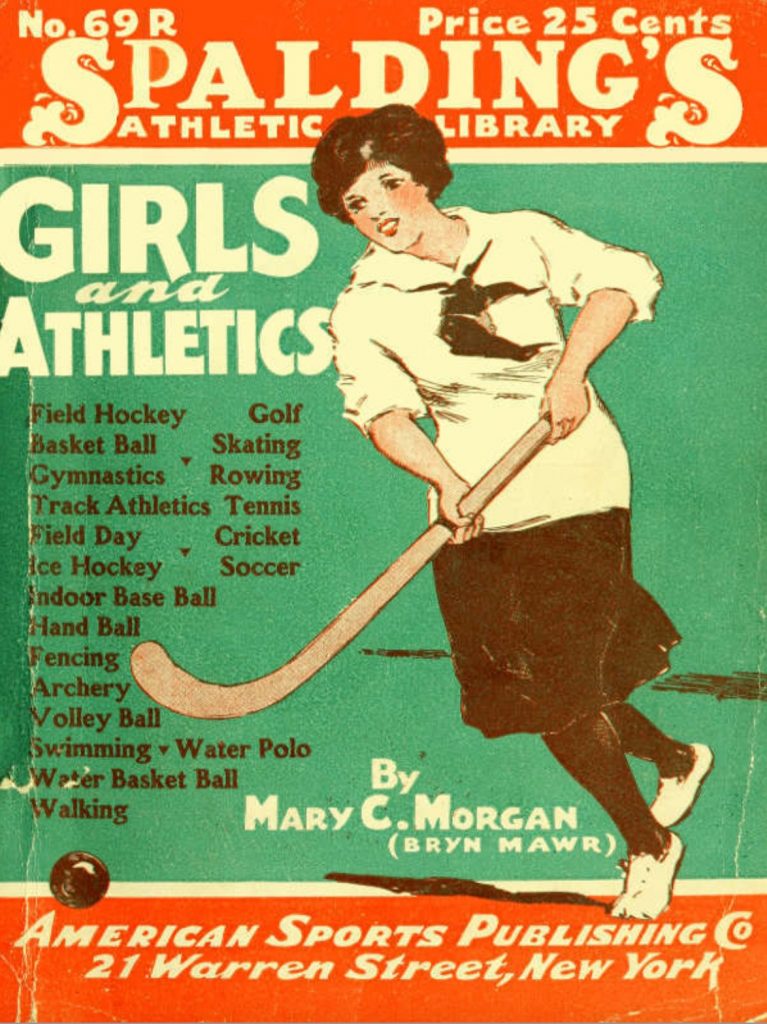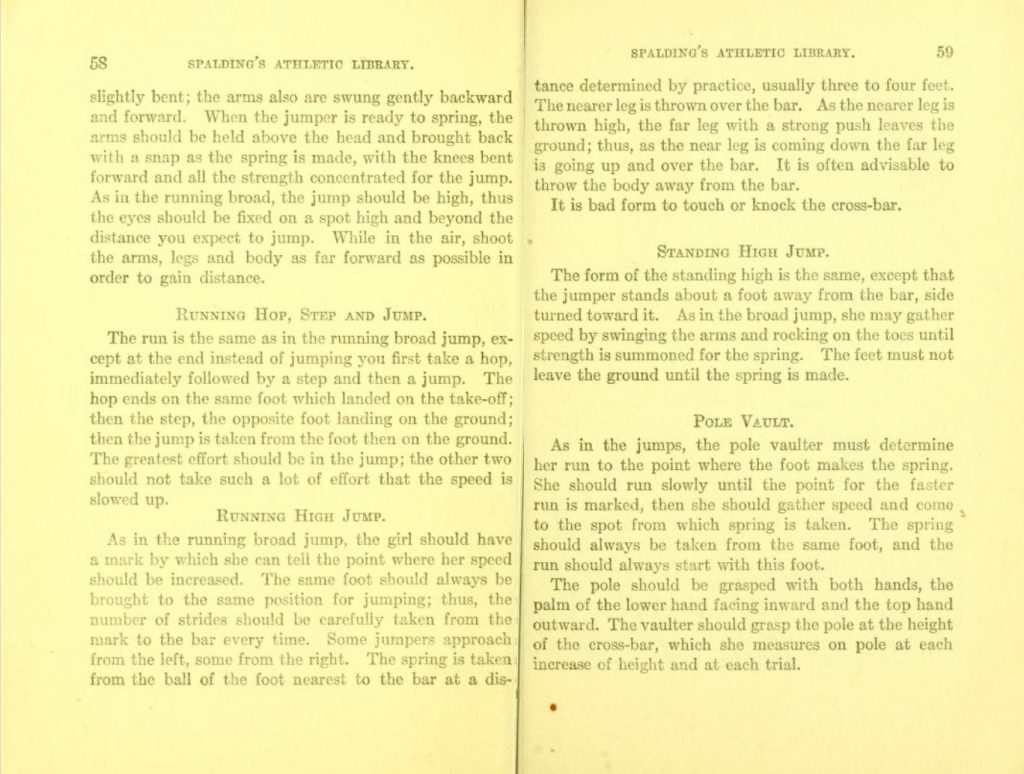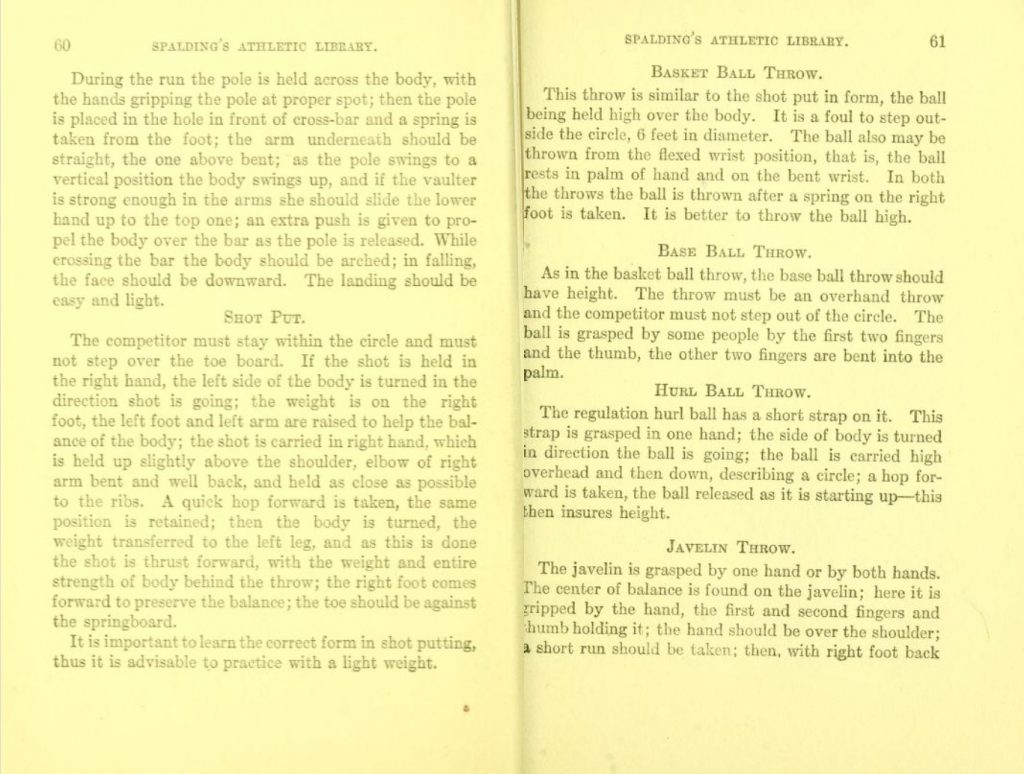The USOPC has published USATF’s NGB Governance Audit.
In this post I will take a deep dive into how we got here, where we were deficient, and what this means moving forward…
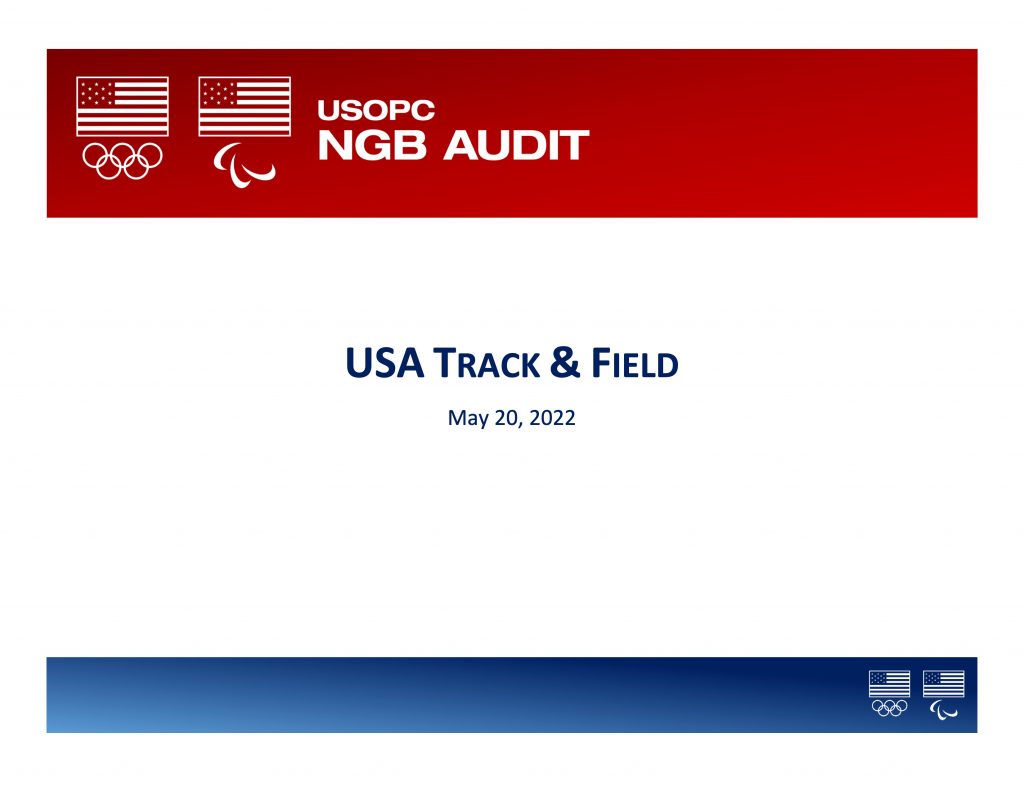
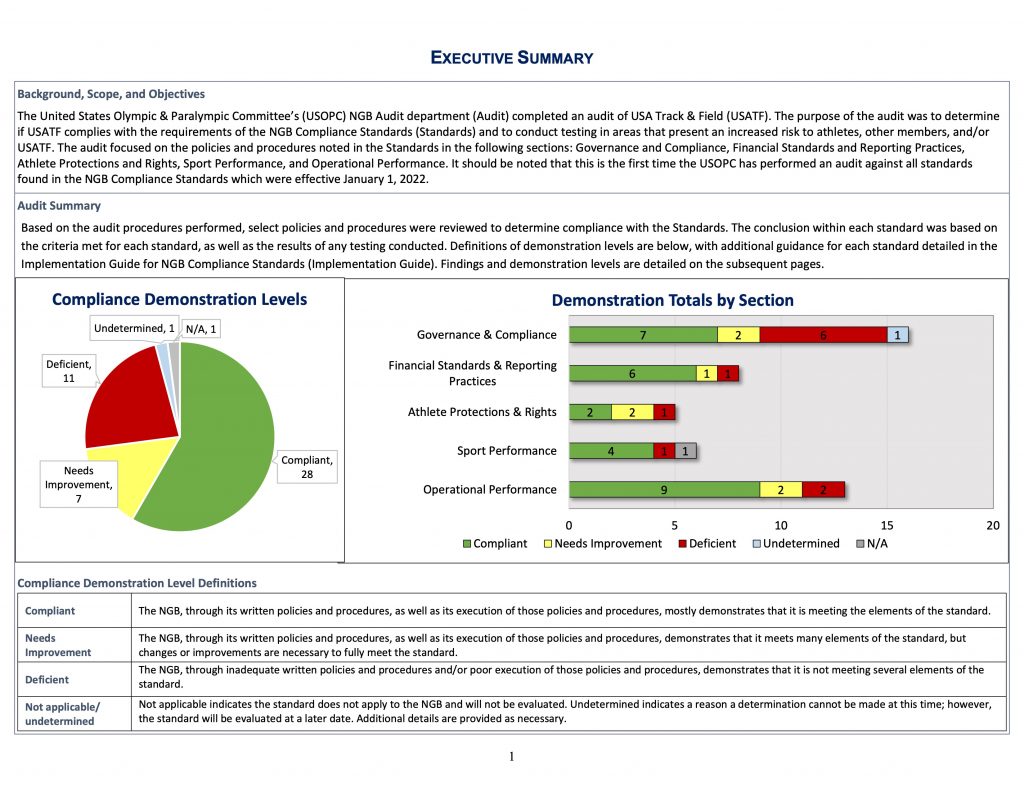
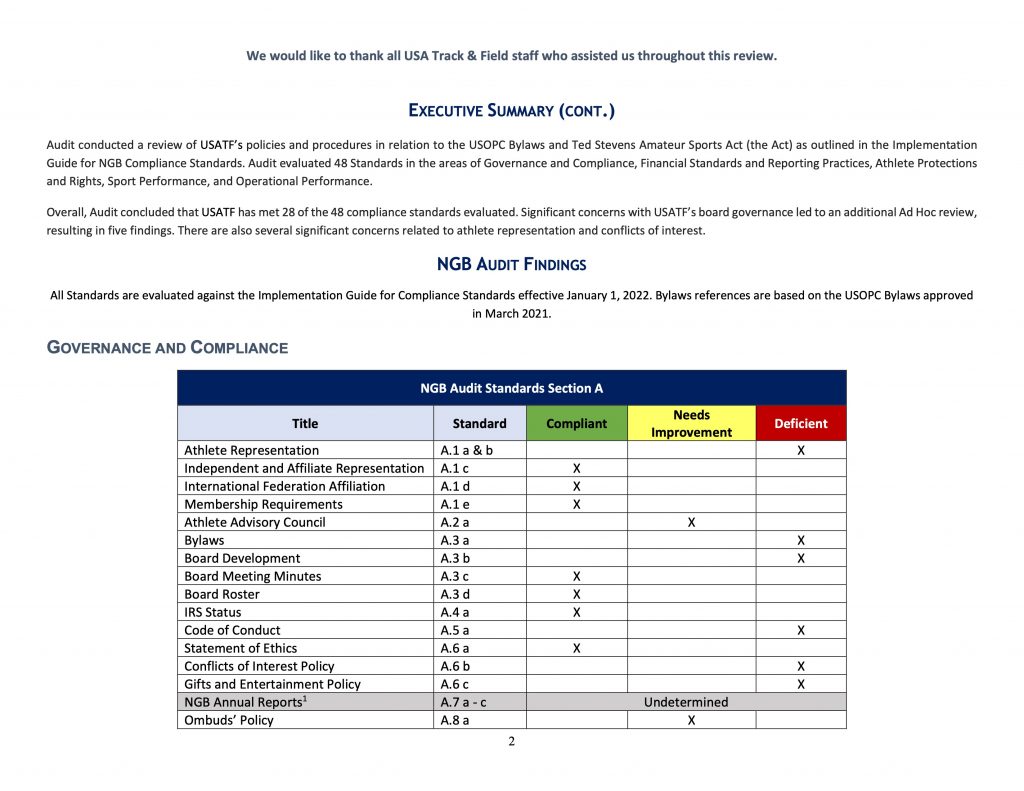
You can learn more about the USOPC NGB Compliance Standards and get your own copy of our audit here: https://www.usopc.org/ngb-audit
Click “NGB Audit Reports” near the bottom to get your own copy of our audit.
This story begins in 2019.
USATF pays $$ for a Daniels Report to ostensibly look at how to improve our SafeSport efforts.
That report was hijacked for political purposes, remains unpublished to this day.
I wrote about this in more length here: https://www.facebook.com/groups/162889787132224/posts/4506714329416393/
Although USATF never shared the Daniels Report with its membership, which means the inaccurate information could not be exposed, they did share it with the USOPC, who then started making strange demands upon USATF’s membership.
The governance model we had used since the Amateur Sports Act split up AAU was suddenly deemed unacceptable.
This came to a head at the 2020 Annual Meeting, here is an article I wrote prior to that: https://trackandfieldnews.com/opinion-vote-no-against-usatf-losing-its-voice-in-governance/
The USOPC Governance Audit that was being held over our heads that was supposed to take place in 2021 was mysteriously changed to 2022, which allowed it to be held over our heads again.
The same governance issues came to the membership again in 2021, they voted them down even more soundly than before. https://trackandfieldnews.com/opinion-usatf-at-crossroads-again/
I emailed USATF’s Board of Directors after the 2021 Annual Meeting and encouraged them to review the governance audits that had been posted for other NGBs at that point. I expressed concern that we would have deficiencies in other areas of the audit, particularly whistleblower.
I have to stress that throughout this process, our athletes, represented by USATF’s AAC, were continuously being told that it was crucial we do well on the audit, that deficiencies on the audit would put their funding at risk.
Fast forward to May 20, 2022, our Governance Audit is finished. I do not know when the USOPC posted it, I just found it today, but USATF has had this since then.
Let’s break it down…
1. This is tricky because we have always allowed nominations to be made from the floor during athlete elections. But with so many relatively new requirements around SafeSport, background checks, etc, it probably makes sense to move to a model that allows vetting before elections.
2. USATF did publish info about the USOPC Athletes Ombudsman within the past few years, thank you USOPC for getting on them about not pushing that information forward to the athletes. The anti-retaliation statement has now been added.
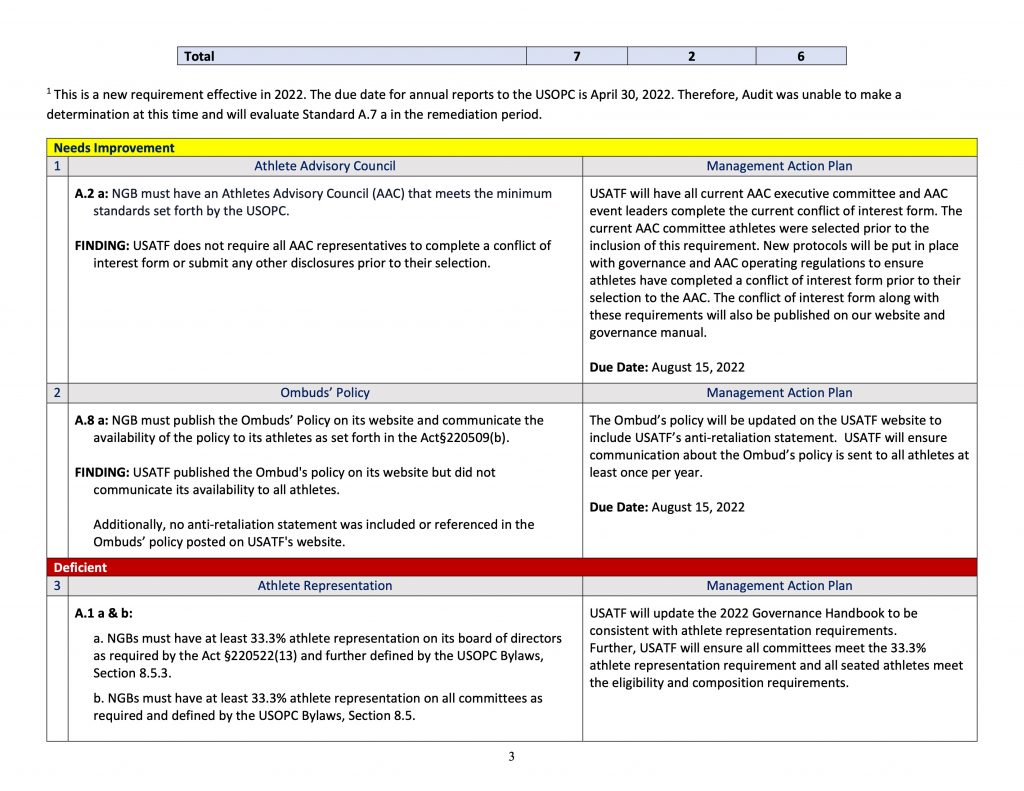
3 (start with previous image). There is a lot to unpack here… Not shocked that the AAC internal policies are not up to date. Whose responsibility should it be to make sure they are complying with the latest USOPC regs?
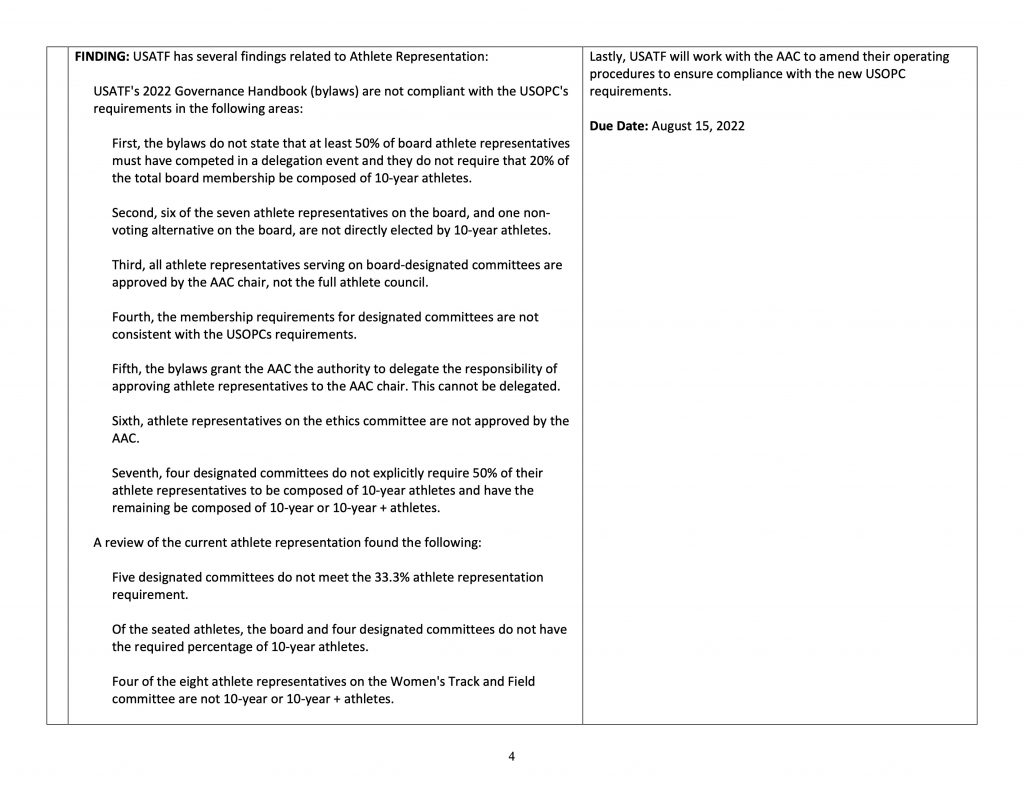
4. This is not a big deal, but the board will have to pass emergency legislation to meet that August 15 deadline, unless it gets extended, and they do not currently have a meeting scheduled.
5. Easy enough to fix.
6. LOL @ the multiple codes of ethics.
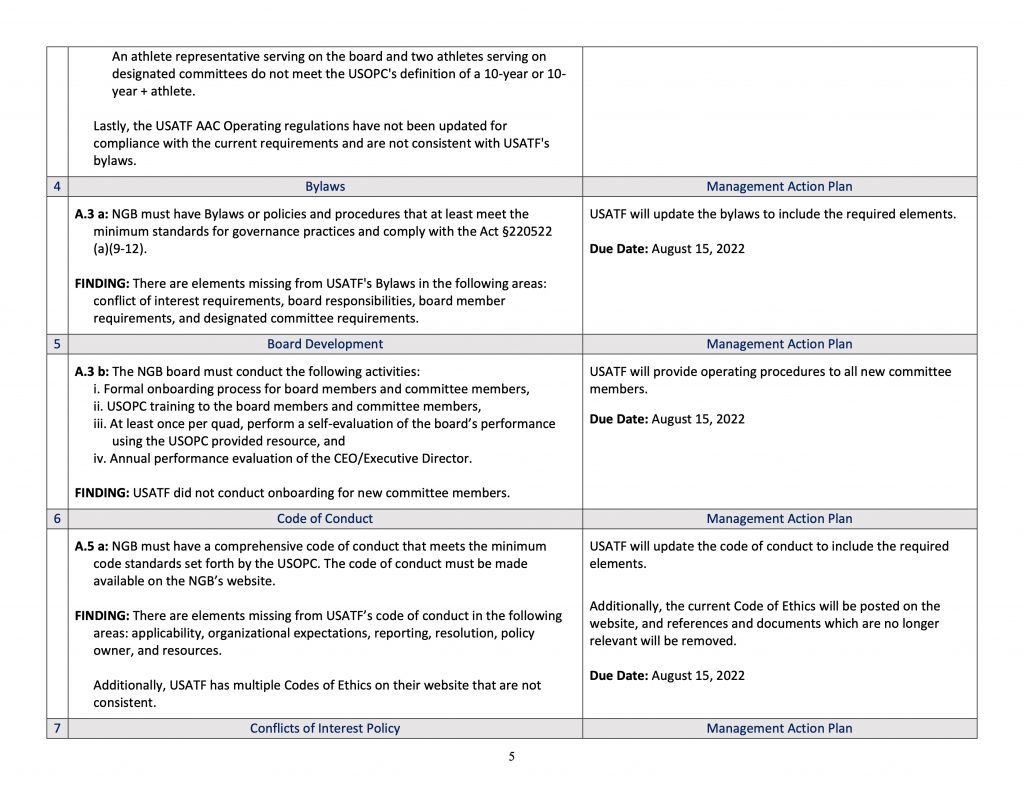
7. After everything we have been through with conflicts of interest, you would think we would have this stuff nailed down by now…
8. LOL Also, again, I believe these are things the board will have to approve by August 15…
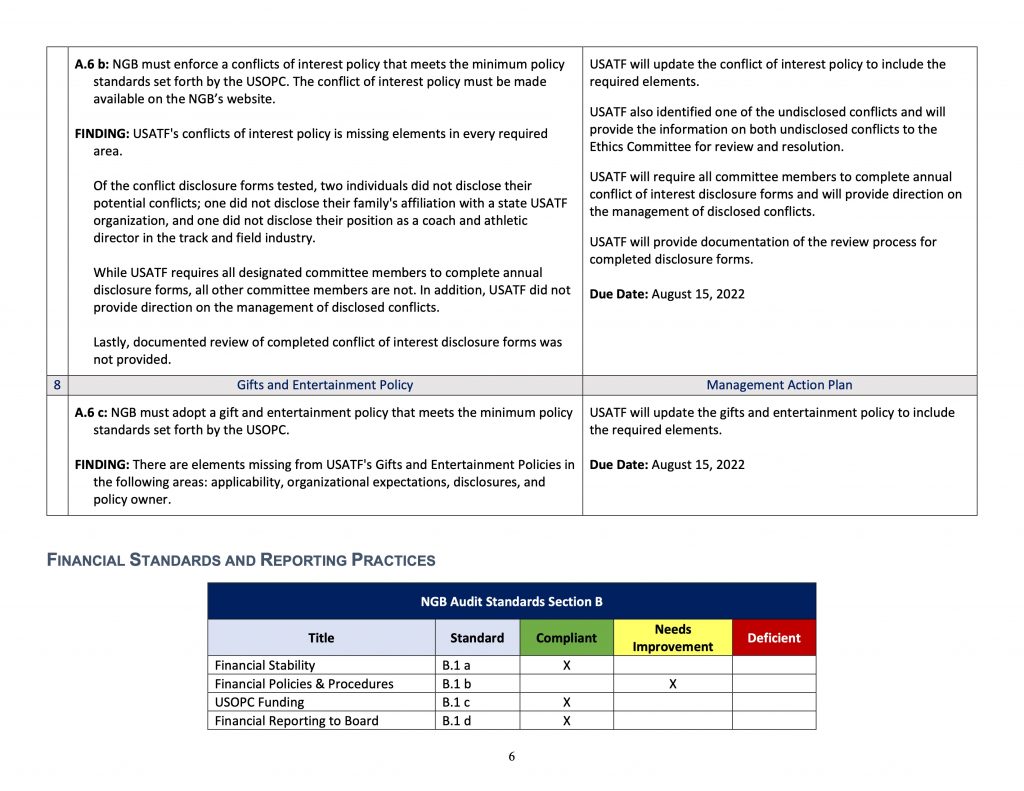
9. This gets pretty in the weeds.
10. I’ve made a number of posts about USATF’s tax returns over the years. Perhaps we are entering the “find out” stage of things.
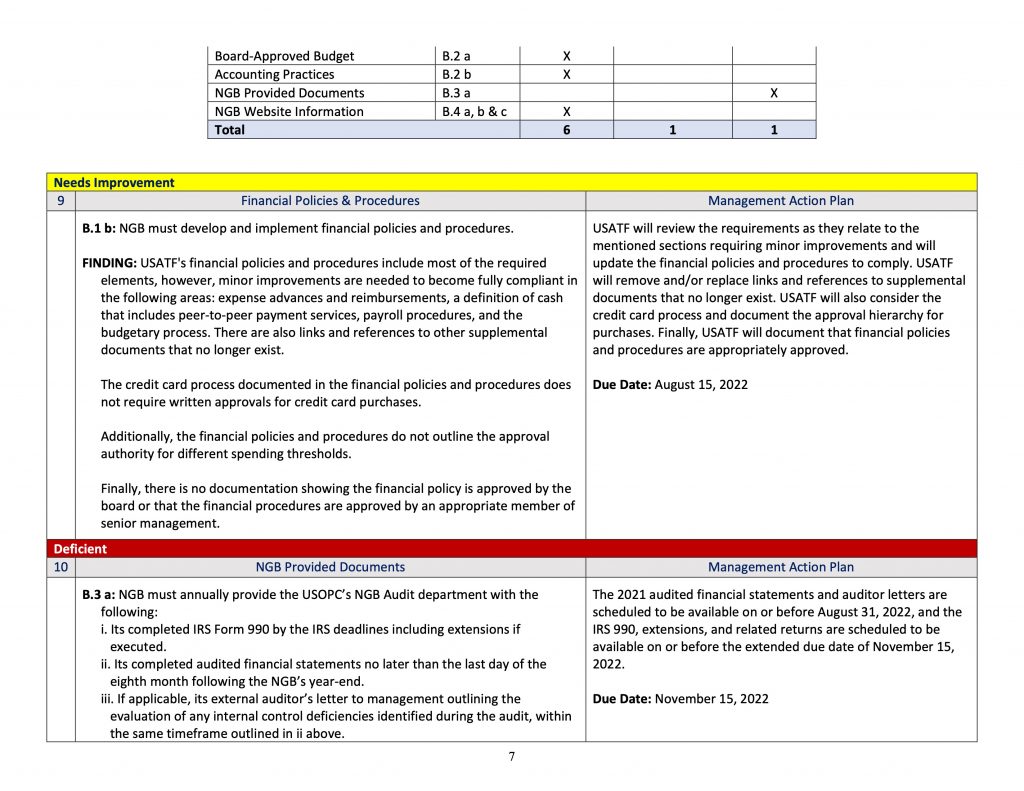
11. and 12. These are the minor sorts of things you expect to come up in these types of audits.
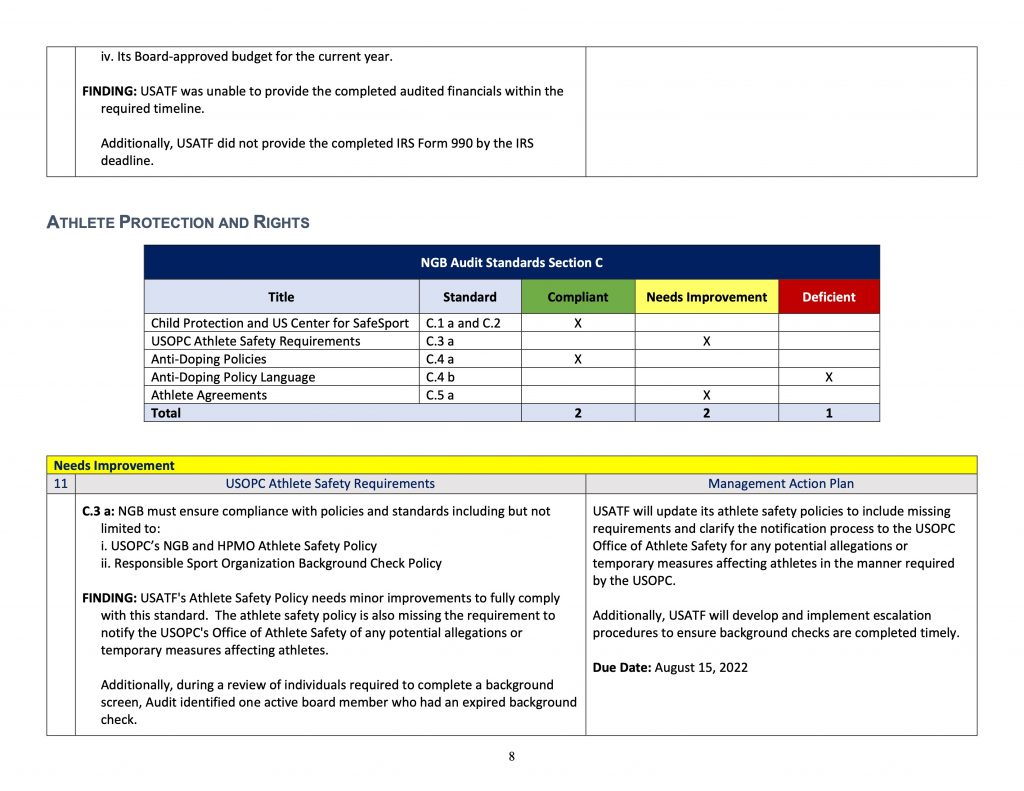
13. Wait, what?! How do we not have the correct anti-doping language in our bylaws?
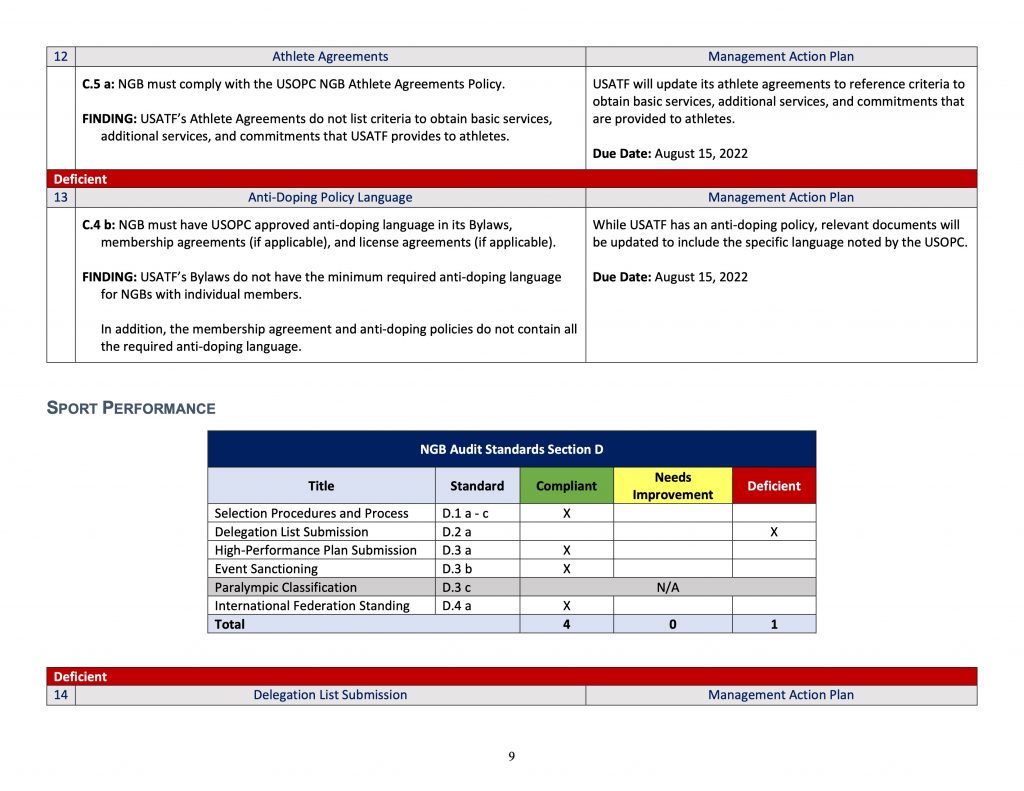
14. I don’t know enough about this to say much, other than to note that this sounds like an issue that falls on the National Office staff, not the volunteers.
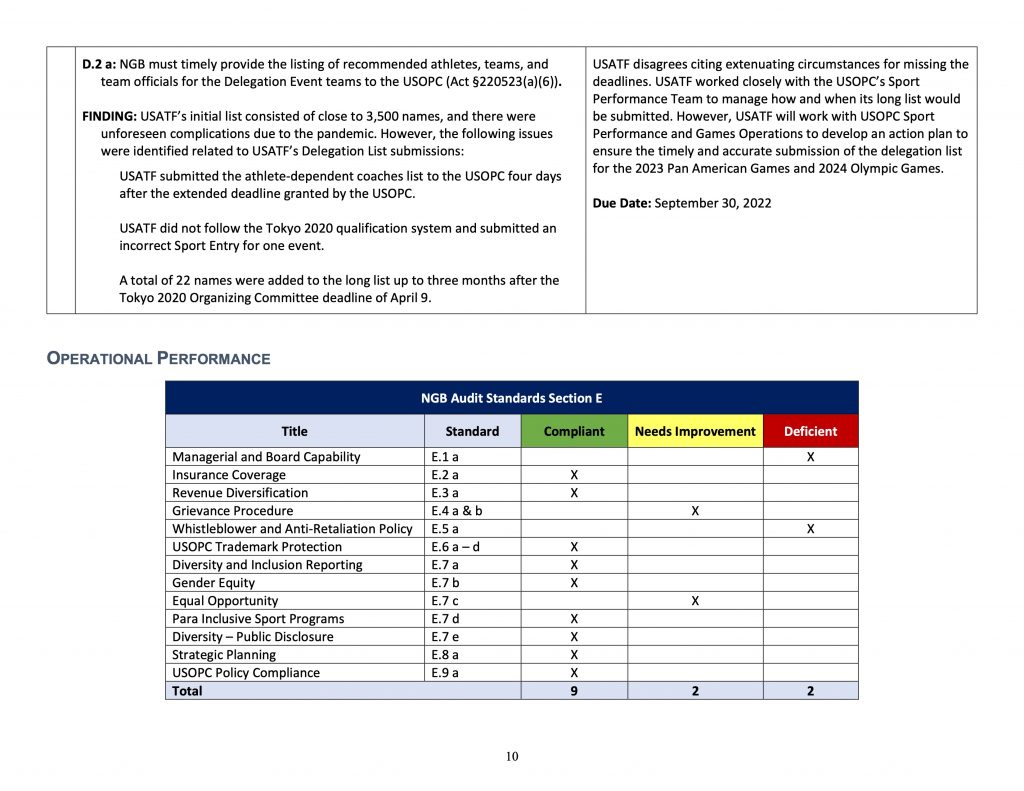
15. Our grievance process has flaws, but these are fairly minor tweaks that need to be made.
16. Super minor.
17. Will address later in the thread
18. I HAVE BEEN COMPLAINING ABOUT OUR WHISTLEBLOWER POLICY SINCE 2015!!!! I correctly predicted we would have a deficiency here.
I reached out to the board multiple times over the years and begged them to update this.
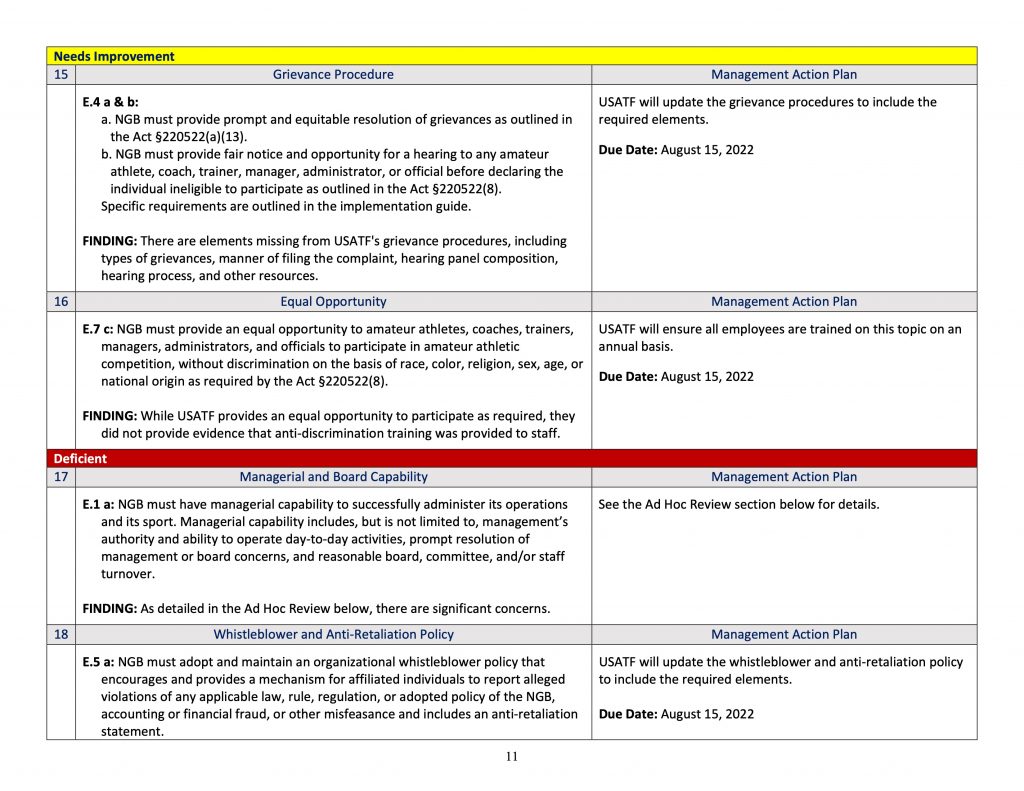
Ad Hoc – The recommendations in this section are based largely on the Daniels Report. I repeat my previous statements about the Daniels Report being based on inaccurate information, thus leading to recommendations that are not in the best interest of USATF or any NGB.
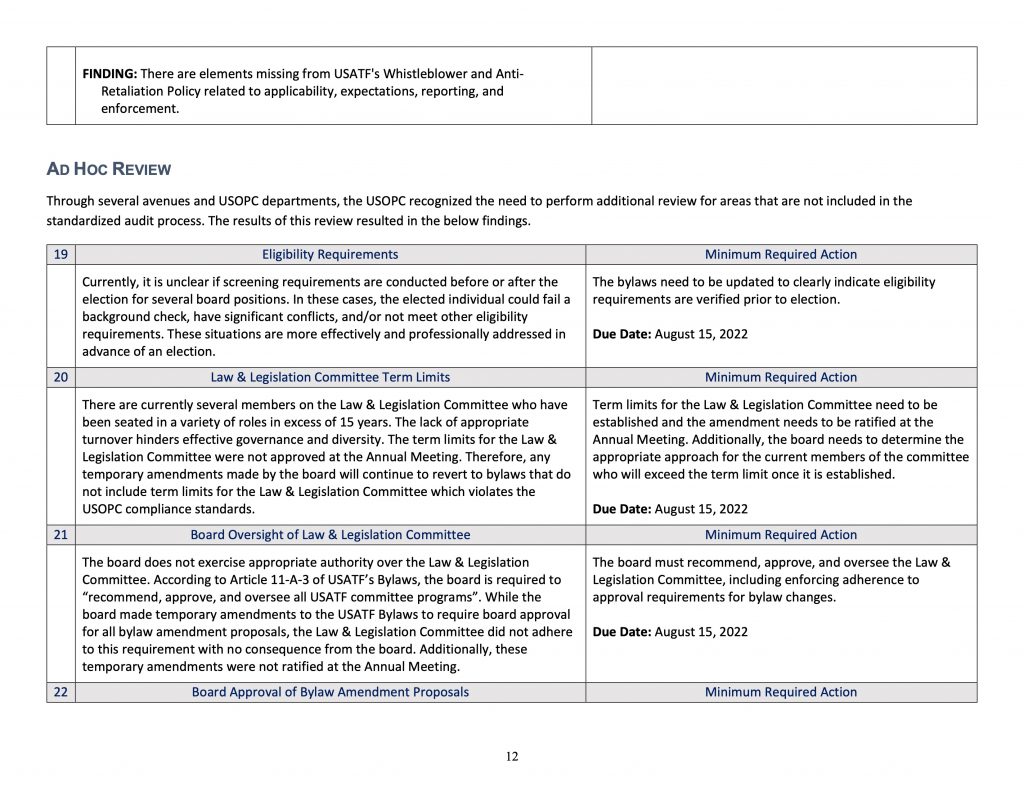
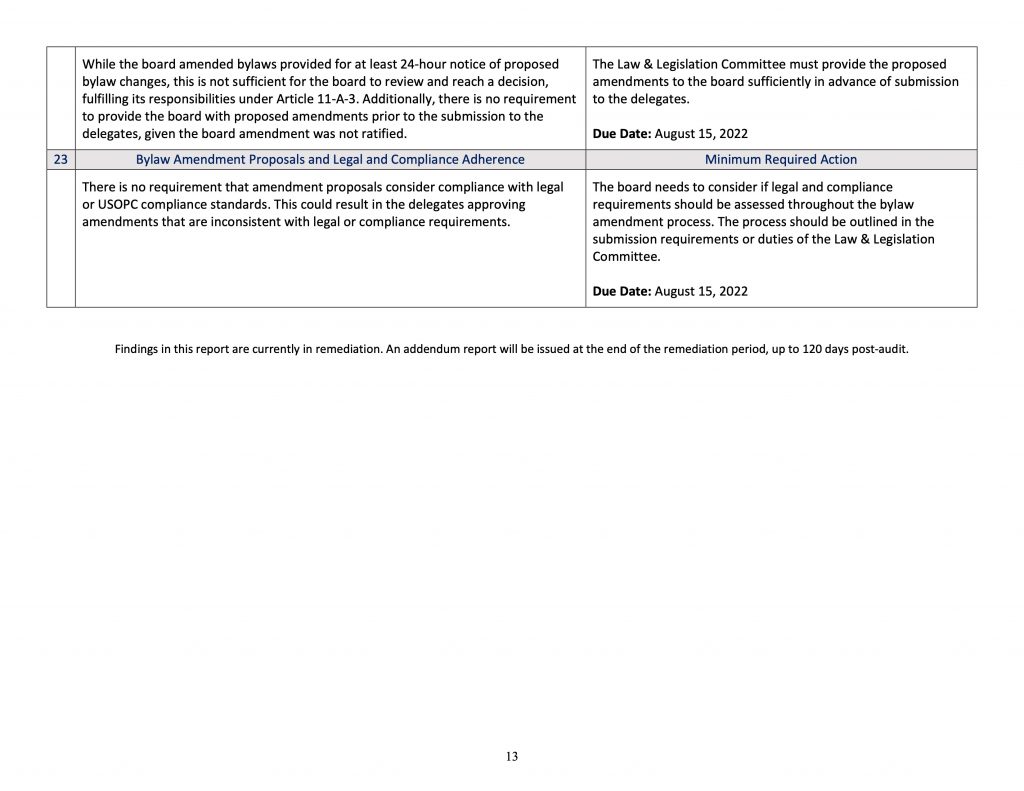
Nevertheless, there have been extensive negotiations on these issues since December and I am confident a resolution will be reached soon and that we will not have a floor fight over these things at this year’s Annual Meeting.
Deficiencies are normal in these audits. No NGB has had a perfect one yet.
But we had a whole extra year to prepare for this. We had the ability to review other NGBs’ audits to see what issues were frequently coming up. The audit standards were posted.
I personally spent a lot of energy talking with individual board members, emailing the whole board, and posting online to raise awareness about the fact that we had an audit coming up and that we needed to work on things _beyond L&L_ to pass it.
What frustrates me is that I know the focus will continue to be on L&L, and the lack of attention to the rest of this that caused us to have NUMEROUS other deficiencies will be ignored.
L&L has nothing to do with any of the deficiencies in this report outside of the ad hoc.
